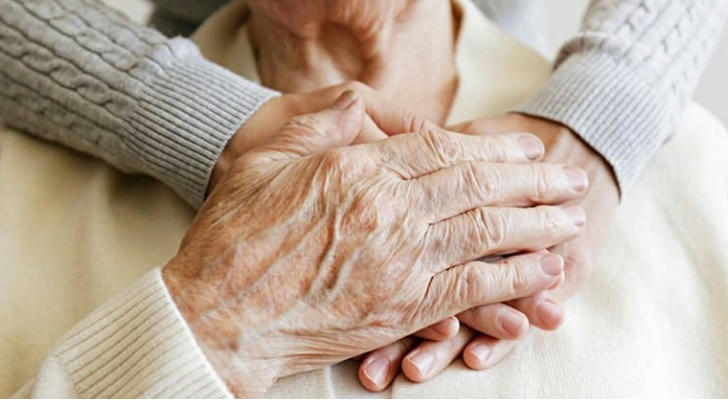Let geriatric care improve the quality of life of the elderly
As the global population ages, the importance of elder care becomes increasingly apparent. Geriatric care focuses on the unique health needs of older adults, addressing not only their medical conditions but also their mental, social and emotional well-being. Improve the quality of life of the elderly through comprehensive care strategies, allowing the elderly to better embrace life
Understanding Geriatric Care
Geriatric care is a specialized branch of healthcare that caters to the complex needs of older adults. It encompasses a multidisciplinary approach, involving physicians, nurses, social workers, and caregivers who collaborate to provide holistic support. This type of care addresses various aspects of aging, including chronic illnesses, mobility issues, cognitive decline, and mental health challenges.
The primary goal of geriatric care is to improve the overall quality of life for seniors. This involves not only managing medical conditions but also promoting independence, enhancing social engagement, and fostering emotional well-being. By focusing on these areas, geriatric care can significantly impact how older adults perceive their lives and their ability to enjoy everyday activities.

Enhancing Physical Health
One of the cornerstones of geriatric care is maintaining and improving physical health. Many older adults face chronic conditions such as heart disease, diabetes, arthritis, and osteoporosis. Effective management of these conditions is crucial for enabling seniors to lead active and fulfilling lives.
Personalized Care Plans
Geriatric care begins with comprehensive assessments that consider each individual's unique health status and personal goals. Healthcare providers develop personalized care plans tailored to meet the specific needs of older adults. These plans may include medication management, physical therapy, nutritional guidance, and regular health monitoring.
For instance, a senior with mobility issues may benefit from a customized exercise program designed to enhance strength and balance. Such interventions not only improve physical health but also reduce the risk of falls—a significant concern for older adults. By addressing these health challenges proactively, geriatric care empowers seniors to maintain their independence and engage in activities they enjoy.
Nutrition and Wellness
Proper nutrition plays a vital role in promoting health among older adults. Geriatric care emphasizes the importance of balanced diets rich in essential nutrients to support overall well-being. Healthcare providers often work with dietitians to create meal plans that cater to individual dietary restrictions and preferences.
Additionally, wellness programs that encourage physical activity—such as group exercise classes or walking clubs—can significantly enhance seniors' quality of life. These programs foster social connections while promoting physical health, allowing older adults to rediscover joy through movement and interaction with peers.
Supporting Mental Health

Mental health is another critical component of geriatric care that significantly impacts quality of life. Many older adults experience feelings of loneliness, depression, or anxiety due to various factors such as loss of loved ones, chronic illness, or social isolation.
Addressing Emotional Needs
Geriatric care providers recognize the importance of addressing emotional well-being alongside physical health. Regular mental health screenings can help identify individuals who may benefit from counseling or therapy. Support groups and community programs also provide valuable opportunities for social interaction and emotional support.
Engaging in meaningful activities—such as arts and crafts, gardening, or volunteering—can foster a sense of purpose among seniors. These activities not only combat feelings of isolation but also enhance self-esteem and overall happiness. By encouraging participation in enjoyable pursuits, geriatric care helps older adults rediscover joy in their daily lives.
Cognitive Health
Cognitive decline is a common concern among older adults; however, geriatric care can play a significant role in supporting cognitive health. Activities that stimulate the mind—such as puzzles, reading groups, or memory games—can help maintain cognitive function.
Additionally, healthcare providers may recommend cognitive training programs designed to enhance memory and problem-solving skills. These interventions empower seniors to remain engaged mentally while fostering social connections through shared activities.
Fostering Social Connections
Social engagement is essential for maintaining a high quality of life in older adulthood. Geriatric care emphasizes the importance of fostering relationships with family members, friends, and community members.
Community Involvement
Assisted living facilities and senior centers often offer various programs that encourage social interaction among residents. Activities like game nights, movie screenings, or group outings provide opportunities for seniors to connect with others who share similar interests.
Moreover, technology has made it easier for older adults to stay connected with loved ones who may live far away. Video calls and social media platforms allow seniors to maintain relationships despite geographical barriers. By promoting these connections through geriatric care initiatives, we can help combat loneliness and enhance overall well-being.

Family Involvement
Family members play a crucial role in supporting seniors' emotional health. Geriatric care encourages family involvement by facilitating open communication between healthcare providers and families about their loved ones' needs and preferences. This collaborative approach ensures that families are informed about available resources while reinforcing their role as caregivers.
When families participate in activities at assisted living communities or attend support groups together, they strengthen their bonds while contributing positively to their loved ones' quality of life.
Case Study 1: Mrs. Thompson’s Journey
Mrs. Thompson is a 78-year-old woman living alone in her home. She has a history of hypertension and diabetes, leading to mobility challenges and feelings of isolation. After experiencing a minor fall, her family decided it was time to seek professional help.
Upon assessment by a geriatric care team, it was determined that Mrs. Thompson would benefit from a personalized care plan that included:
Home Modifications: The team recommended installing grab bars in her bathroom and rearranging furniture to create clear pathways for easier mobility.
Nutritional Support: A dietitian provided guidance on meal planning to manage her diabetes while ensuring she received adequate nutrition.
Physical Therapy: A physical therapist developed a tailored exercise program focusing on strength training and balance exercises to reduce fall risk.
Social Engagement: The team connected Mrs. Thompson with local community programs that offered social activities for seniors.
Over six months, Mrs. Thompson’s quality of life improved significantly. She reported feeling more independent due to her enhanced mobility and expressed joy in participating in community events where she made new friends. Regular follow-ups with her healthcare providers ensured her medical conditions remained well-managed.
Conclusion
Geriatric care has the potential to transform the lives of older adults by improving their quality of life and helping them rediscover the joy of living. By focusing on personalized healthcare strategies that address physical health, mental well-being, and social connections, we can empower seniors to lead fulfilling lives filled with purpose and happiness.
As society continues to recognize the value of geriatric care in enhancing the lives of older individuals, it becomes increasingly important for families and caregivers to advocate for comprehensive support systems that prioritize holistic well-being. Through these efforts, we can ensure that our elderly population not only lives longer but also enjoys richer and more meaningful experiences during their golden years.
